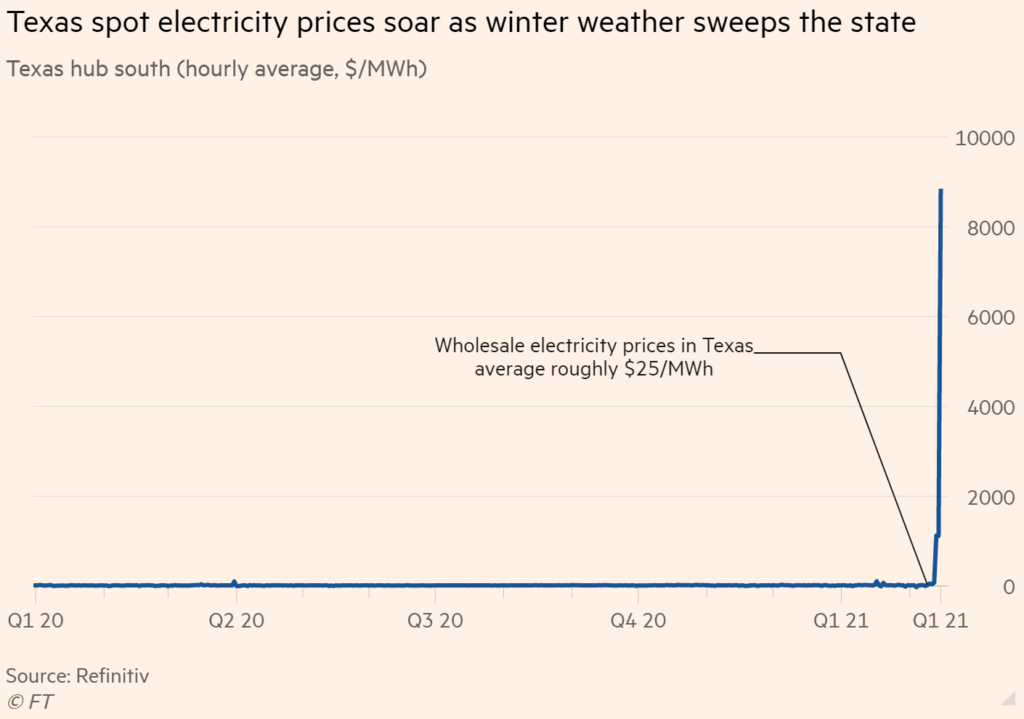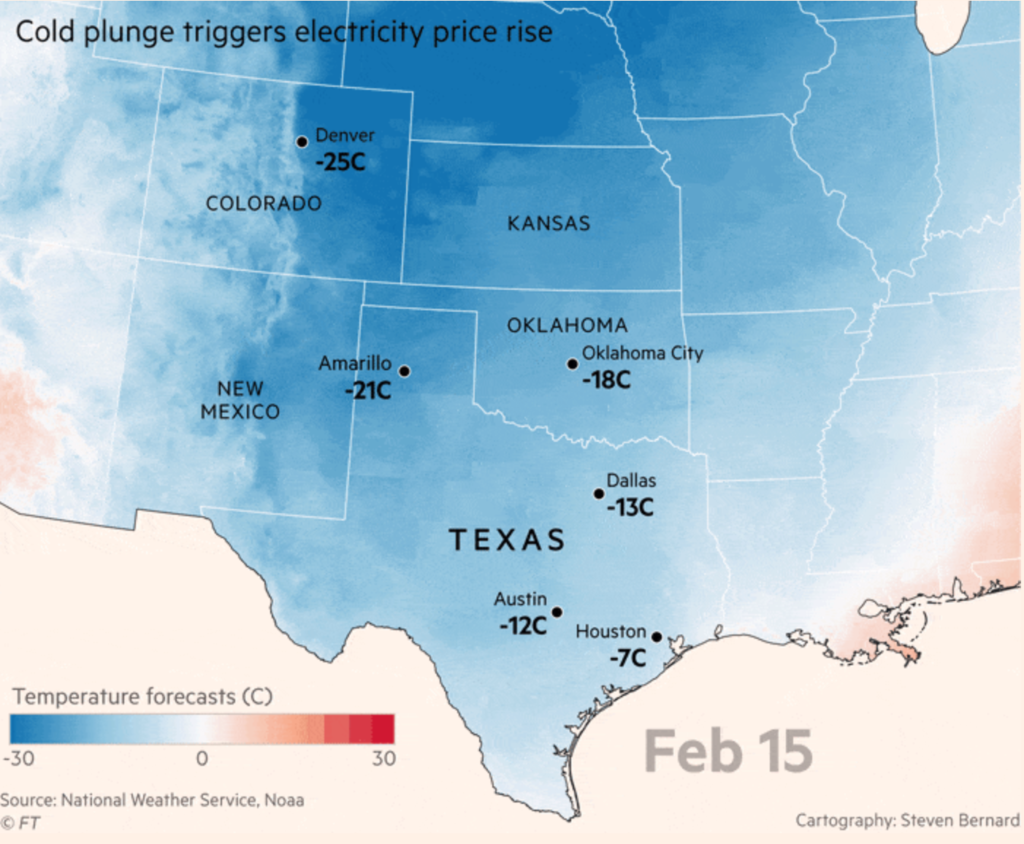The Texas grid operator started rolling blackouts throughout the state early this Monday, as a mass of arctic wind, coming from South Canada, has dropped the temperatures to minus 15,5C, to which, in turn boosted electricity prices nearly 10,000 per cent.
Firstly, the Electric Reliability Council of Texas (ERCOT) told consumers they had to conserve electricity at home, as its supply had become critical at least until Tuesday, as the grid is coping with extreme weather conditions that are draining electricity supplies.
Then, at 1:25, local time, it announced the rotating of outages to “reduce demand on the electricity system”; in addition, “traffic lights and other infrastructure may be temporarily out of power.”


Consequently, real time wholesale market prices on the power grid climbed to a record high of $11,000 per megawatt, according to ERCOT. This is a 10,000% increase, as the typical price per megawatt is $100.
Secondly, the surge is a consequence of the cost of congestion, and its reflection on real-time pricing. Early this Monday, ERCOT said extreme weather conditions forced many power generating units off the grid, upending the supply for electricity.
Also recommended for you: Canada and Alberta announce funding of $11,6 million for infrastructure
A test for Texas electricity model
Thirdly, the mass of freezing air has hit natural gas supplies, as well as wind generation assets; also, oilfields and turbines, as Texas is considered the heartland of the U.S. energy sector. In fact, Texas is the largest oil and gas producer in the nation. It is, also, among the top electricity consumers.


On the other hand, Dan Woodfin, ERCOT’s senior director, said on Sunday that electricity demand was likely to exceed the record of 74,820 MW set during the summer of 2019. He said Texans must turn down thermostats, close window shades and unplug unnecessary appliances to save energy.
Consequently, on Monday morning, he declared to be in emergency operations. This condition will remain at least until Tuesday morning, he confirmed.
According to the FT, this situation will be a test for Texan’s freewheeling electricity model; that pays operators only for the energy that they sell, and not for the reserved energy capacity they have, for times of stress.

